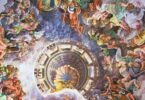Explore the fascinating world of Rome’s rich history, culture, and leaders in this engaging quiz. Challenge yourself and uncover hidden facts about one of the greatest empires in history.
Which modern-day country was not a part of the Roman Empire at its height?
(a) France
(b) Spain
(c) Germany
(d) Egypt
Which one of the following is the author of “Histories” which explained Roman success?
(a) Polybius
(b) Cicero
(c) Socrates
Who is considered to be the first Roman emperor?
(a) Brutus
(b) Tiberius
(c) Augustus
(d) Julius Caesar
During its peak, which Emperor is often credited with expanding the Empire to its greatest territorial extent?
(a) Augustus
(b) Julius Caesar
(c) Nero
(d) Trajan
Rome was founded in the year
(a) 763 BC
(b) 758 BC
(c) 753 BC
(d) 767 BC
Related: capitals of the World Quiz
When did Augustus (Octavian) become the first Roman Emperor?
(a) 27 BC
(b) 44 BC
(c) 14 AD
(d) 476 AD
In what year was Julius Caesar assassinated?
(a) 27 BC
(b) 44 BC
(c) 14 AD
(d) 476 AD
Which one of the following ideas/ideas did the Romans spread in Europe?
(a) Universal Law
(b) Jus Naturale
(c) Brotherhood of Man and World Citizenship
(d) All the above
Which Emperor was responsible for the Great Fire of Rome in 64 AD?
(a) Augustus (Octavian)
(b) Julius Caesar
(c) Nero
(d) Marcus Aurelius
Related: What is the Roman numeral for 1000?
The last Emperor of Rome was
(a) Hadrian
(b) Romulus Augustus
(c) Marcus Aurelius
(d) Aurelian
Which legendary event in Roman history is said to have laid the foundation for the city of Rome?
(a) The Battle of Actium
(b) The Trojan War
(c) Construction of Hadrian’s Wall
(d) The Aeneid
The Consuls of Roman society represented the elements of
(a) Monarchy
(b) Aristocracy
(c) Democracy
Who was the founder of the Roman Empire?
(a) Julius Caesar
(b) Augustus (Octavian)
(c) Nero
(d) Caligula
The period of history marked by the transition from the Roman Republic to the Roman Empire is often referred to as:
(a) The Pax Romana
(b) The Julio-Claudian Dynasty
(c) The Roman Revolution
(d) The Renaissance
In ancient Rome, the Law applicable to both citizens and foreigners is called
(a) Jus Naturale
(b) Jus Civile
(c) Jus Gentium
What year is traditionally considered the marking of the transition from a Roman monarchy to a republic?
(a) 509 BC
(b) 27 BC
(c) 44 BC
(d) 753 AD
Which emperor, having seen a vision, tolerated Christians, became attached to the faith, and began the union between the Church and the Empire?
(a) Pontius Pilate
(b) Nero
(c) Constantine the Great
(d) Julius Caesar
Which architectural marvel served as a gladiatorial arena and could hold up to 80,000 spectators?
(a) Colosseum
(b) Pantheon
(c) Forum Omanum
(d) Hadrian’s Wall
What was the Roman name for France?
(a) Lutetia
(b) Gallia
(c) Franca
(d) Francus
Who were the two main leaders in the Battle of Actium in 31 BC?
(a) Julius Caesar and Mark Antony
(b) Octavian and Cleopatra
(c) Hannibal and Scipio Africanus
(d) Nero and Vespasian
Where is the homeland of Queen Boudica (also Boudicca or Boadicea), who led a revolt against the Romans in England in the first century CE?
(a) Wales
(b) Norfolk
(c) East Anglia
(d) Scotland
Related: Test your knowledge of Mongolia country
What innovative Roman engineering structure used to transport water over long distances?
(a) Archimedes’ Screw
(b) Roman Arch
(c) Watermill
(d) Aqueduct
Which one of the following statements is true about Roman Law?
(a) It consists of only Jus Gentium
(b) It consists of only Jus Naturale
(c) It consists of only Jus Civile
(d) It is a product of Jus Gentium, Jus Naturale, and Jus Civile.
In what year did Julius Caesar assume the title of “Dictator for Life,” effectively ending the Roman Republic?
(a) 44 BC
(b) 27 BC
(c) 14 AD
(d) 476 AD
In 1806, the Roman Empire was dissolved by
(a) Napolean
(b) Samnites
(c) Etruscans
(d) Umbrians
Related: Egyptian civilization questions and answers
Which herb did the Romans eat to prevent drunkenness?
(a) Parsley
(b) Basil
(c) Cumin
(d) Chives
Which ancient road system was crucial for the efficient administration and expansion of the Empire?
(a) Silk Road
(b) Appian Way
(c) Inca Trail
(d) Oregon Trail
What was the primary language spoken in the Roman Empire?
(a) Latin
(b) Greek
(c) Aramaic
(d) Romanese
In ancient Roman society, the financial and judicial powers were vested with
(a) The Consuls
(b) The Senate
(c) The Popular Assembly
What body of water served as the eastern boundary of the Roman Empire?
(a) Mediterranean Sea
(b) Black Sea
(c) Adriatic Sea
(d) Red Sea
Related: Quiz about Magic
Which famous Roman general led the Republic to victory in the Punic Wars against Carthage?
(a) Julius Caesar
(b) Marcus Aurelius
(c) Hannibal Barca
(d) Scipio Africanus
What was the state language of the Eastern Roman Empire after the 7th century?
(a) Arabic
(b) Greek
(c) Latin
(d) Russian
Who was the first Roman general to cross the Rubicon River, a pivotal act that marked the beginning of a civil war and the eventual rise of the Empire?
(a) Julius Caesar
(b) Augustus
(c) Mark Antony
(d) Pompey
Which one of the following is a characteristic of Roman Law?
(a) Secularization of Law
(b) Universal nature of Law
(c) The individual is the center of legal thought
(d) All the above
When is the generally accepted year for the fall of the Western Roman Empire?
(a) 27 BC
(b) 476 AD
(c) 1453 AD
(d) 410 AD
Related: Test your knowledge about The Renaissance
When was Charlemagne crowned as the Emperor?
(a) 800
(b) 860
(c) 871
(d) 899
Which Emperor is famously known for building a wall across northern Britain to defend the Roman province against Scottish tribes?
(a) Trajan
(b) Hadrian
(c) Nero
(d) Tiberius
Caractacus, Cartimandua and Scapula had what in common?
(a) Scapula led the other two as captives to Rome.
(b) British resistance to the Roman invasion of Britain
(c) French cities
(d) Italian breeds of sheep
What was the approximate population of the city of Rome at the height of the Roman Empire’s power?
(a) 500,000
(b) 1 million
(c) 5 million
(d) 10 million






